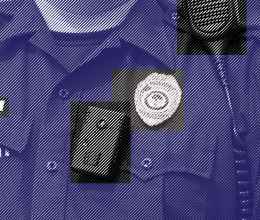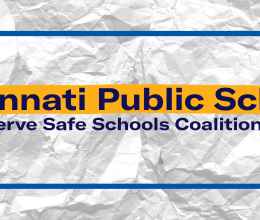In case you didn’t know, it’s National Police Week. Let’s reflect on what’s missing from the conversation.
We can all agree that we want our neighborhoods to feel safe. But "safe" can mean many different things to many different people. And too often, governments have used the idea of “safety” as a way to diminish people’s rights – particularly in communities of color and low-income communities.
For example, in the name of “safety", the New York City Police Department targeted Black and Latinx neighborhoods with dragnet-style policing that was ineffective and found unconstitutional in 2012. Through its “stop and frisk” program, the NYPD stopped and interrogated people 532,911 times in 2012 alone, a 448-percent increase in street stops since 2002. Nine out of 10 of people stopped were innocent, meaning they were neither arrested nor ticketed. Roughly 87 percent of people stopped were black or Latino, whereas white people accounted for only 10 percent of stops. Unlike many unconstitutional policing practices, NYPD’s program made national headlines at the time. But discriminatory practices like these, that make neighborhoods less safe for residents of color, occur every single day.
It’s no secret that police officers have a lot of power. They even have the power to take away the ultimate civil liberty: life. With that tremendous power there must be tremendous accountability.
A lot of times when politicians talk about “public safety”, they are referring only to violence committed by individuals, but ignore the violence committed by police officers.
As of May 15, 2018, 396 people have been shot and killed by police, and we aren’t even halfway through 2018. Why aren’t we talking about this during National Police Week?
We have to think differently about what safety is – and we have to commit to safety for all, not just some.
We want to live in homes where people treat us with respect, and where we don’t fear break-ins or stray bullets – or FBI raids. We want schools where we can learn freely, where we are valued for who we are, and where we don’t fear physical or gun violence – or harm by armed school resource officers. We want neighborhoods where our children can walk to school, and where our grandchildren can walk around in our backyard with their cell phone in their hand and know that they’ll live to see the next day. We want to know who we can call for help when we or our loved ones are in crisis, and we want assurance that we’ll get the help we need, whether it’s from a counselor, medical professional, or neighbor. If we happen to call 911, we need to know that we’ll actually receive the help we are entitled to as residents relying on a public service. It’s our right not to be brutalized, killed, or harassed by the police.
That’s why, this National Police Week, we are more committed than ever to combatting unchecked police power. We are dedicated to statewide reform:
- Toledo: On Wednesday, May 16, we partnered with the Community Solidarity Response Network of Toledo to hold a forum to hear from Toledo residents: what would make you feel safer? Is it more police officers or fewer? More arrests in your neighborhood or more assurance that you won’t be stopped just because of the color of your skin? A focus on combating violent crime or on furthering constitutional policing?
- Cleveland: On Friday, May 18, the City of Cleveland will release four sets of policies: searches and seizures (police encounters), equipment/resources, staffing/community, and problem-oriented policing. We’ll be watching to make sure these new policies comply with the consent decree and best practices.
- Columbus: Litigation continues in Abdur Rahim et al. v. Columbus et al., the lawsuit we filed in June 2017 against the Columbus Police Department after it used unconstitutional force on peaceful demonstrators.
As we see the one-sided rhetoric this week during National Police Week, let’s remember all the people who are committed to making their communities safer – for everyone, not just some.







